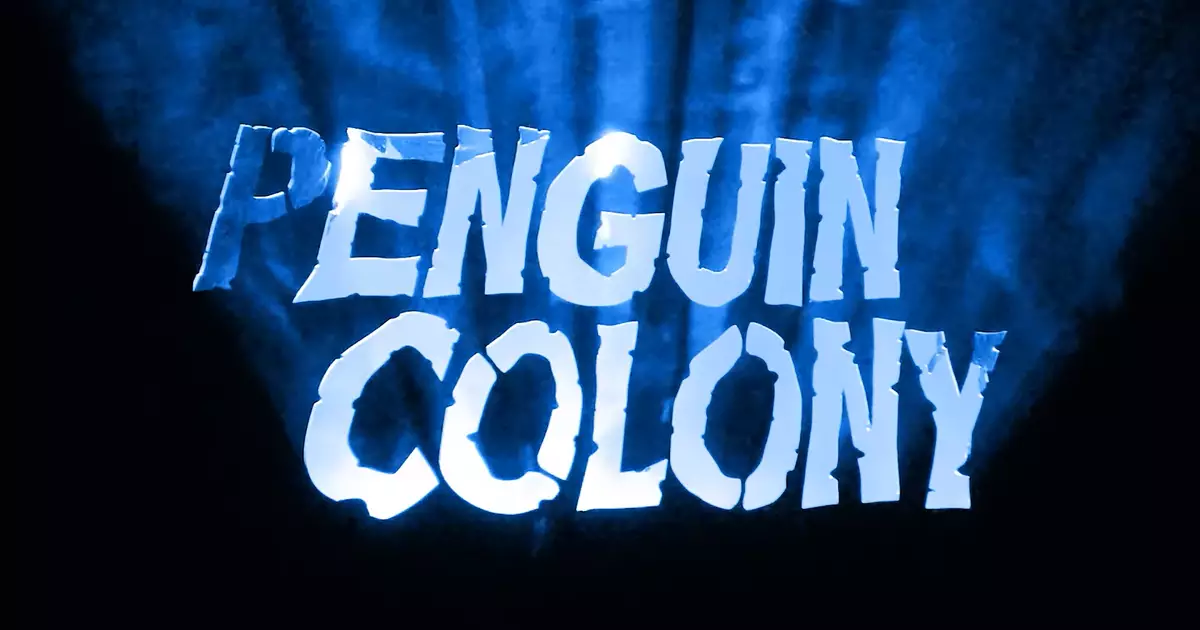The concept of blending Lovecraftian horror with a charming penguin-themed environment offers a bold departure from traditional gaming narratives. Typically, games—especially those from indie developers—stick within familiar confines: exploring vast worlds, defeating monsters, or engaging in straightforward storytelling. However, the initiative to craft an Antarctic open-world experience infused with cosmic terror and teeming with whimsical creatures pushes the boundaries of genre conventions. It suggests a deliberate subversion of expectations, inviting players to reconsider what constitutes a compelling narrative in interactive entertainment.
This approach underscores that innovation often lies in the unexpected. By taking a seemingly adorable animal like a penguin and subjecting it to the existential dread associated with Lovecraft’s mythos, the game challenges players to confront the strange and uncanny. Such a juxtaposition amplifies the emotional impact, turning what could be mere lighthearted fun into a profound reflection on fear, insignificance, and the unknown. It’s a reminder that stories are most powerful when they disrupt our comfort zones and force us to see familiar elements through a new lens.
Voicing the Uncanny: The Role of Narrative and Atmosphere
The involvement of Lenval Brown as the voice behind the trailer elevates the project’s promise considerably. Recognized for his role in Disco Elysium, Brown’s narration is renowned for its deep, immersive quality that injects a sense of gravitas and authenticity into narrative-driven experiences. His presence suggests that this penguin game isn’t a trivial parody but rather a serious exploration of themes that resonate beyond mere entertainment. It hints at a layered storytelling approach that balances humor, horror, and philosophical inquiry.
Furthermore, the visual homage to John Carpenter’s *The Thing* enhances the atmospheric stakes. The film’s claustrophobic paranoia and grotesque effects are not accidental; they serve as a blueprint for creating tension in a cold, isolating Antarctic setting. When combined with the cosmic horror of Lovecraft’s mythology, these visual cues promise a game thick with suspense, dread, and curiosity. This synergy emphasizes how atmosphere and voice work together to craft a cohesive experience that fans of horror and exploration can truly sink into—making the game’s environment feel alive and threatening, even amidst the cuteness of its inhabitants.
Beyond the Surface: Cultural Layers and Political Implications
Diving deeper, the creators’ background—specifically their previous work on *Umurangi Generation*—suggests that this game is more than just a quirky adventure. *Umurangi Generation* was celebrated for its incisive commentary on colonization and indigenous sovereignty, offering a politically charged perspective wrapped in a visually compelling package. If the same ethos infuses this project, then *Penguin Colony* may serve as a subtle critique of colonial narratives, environmental exploitation, or Western perceptions of the polar regions.
The possibility of Māori language inclusion adds a compelling layer. Incorporating indigenous voices and perspectives into a horror narrative about cosmic threats might seem contradictory at first glance, but it signals a desire to challenge colonial paradigms and foreground indigenous storytelling in new contexts. It suggests a conscious effort to question who gets to tell stories about the land, the animals, and the unknown—implying a richer, more nuanced narrative that acknowledges cultural sovereignty while delving into cosmic horror.
The Playful Absurdity of Penguin Variations
One of the intriguing mechanics of *Penguin Colony* is the idea of unlocking different penguins, each with unique abilities and constraints. It’s a playful twist that injects humor into what might otherwise be an intense horror experience. The notion that a baby penguin can squeeze into tiny gaps but cannot swim introduces a level of strategic variation that encourages experimentation and replayability.
This mechanic exemplifies how game design can balance absurdity with depth. The presence of distinct penguin types underscores that even in the face of existential horror, playful elements can serve as a buffer, making the game more accessible and engaging. It reminds players that resilience and adaptability are just as essential as fear and foreboding—an optimistic message disguised beneath layers of cosmic dread.
The Cosmic Significance of Penguins and the Universe’s End
Finally, the cultural and symbolic significance of penguins—those flightless creatures of the icy south—becomes a poignant metaphor in this context. Their status as symbols of resilience and community contrasts sharply with the encroaching cosmic chaos depicted in the game. As the universe teeters on collapse, these adorable creatures become unlikely harbingers of profundity, highlighting humanity’s or even nature’s fragile resilience amid incomprehensible forces.
The seemingly trivial discussions about *Faaast Penguin* or “penguin diagrams” in quantum physics add a layer of surreal humor and philosophical depth. They serve as a reminder that in a universe sculpted by chaos and cold indifference, even the most absurd elements carry weight. The game’s playful tone masks an underlying message: amid the looming darkness of the universe, it’s the small, seemingly insignificant beings—penguins—that remind us to find joy and meaning.
Despite all the chaos, there is a distinct power in how this game refuses to shy away from complexity. It uses humor, horror, and cultural critique to craft an experience that is both entertaining and intellectually provocative. In doing so, it challenges players to view the universe—and themselves—through a radically different lens, where the boundary between the adorable and the terrifying is eternally blurred.

